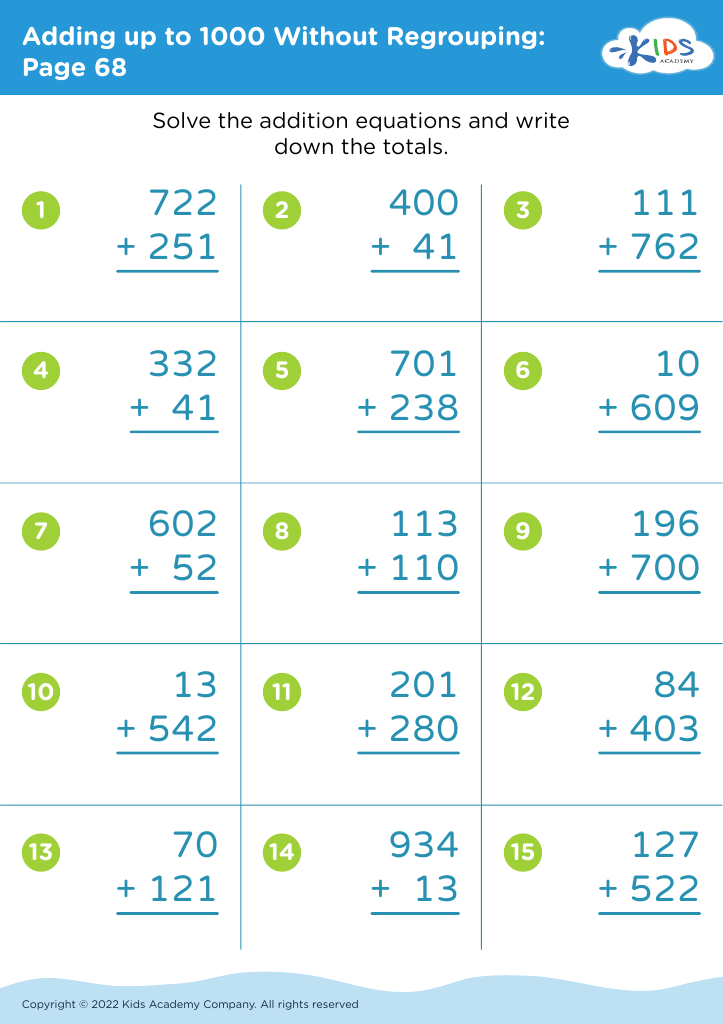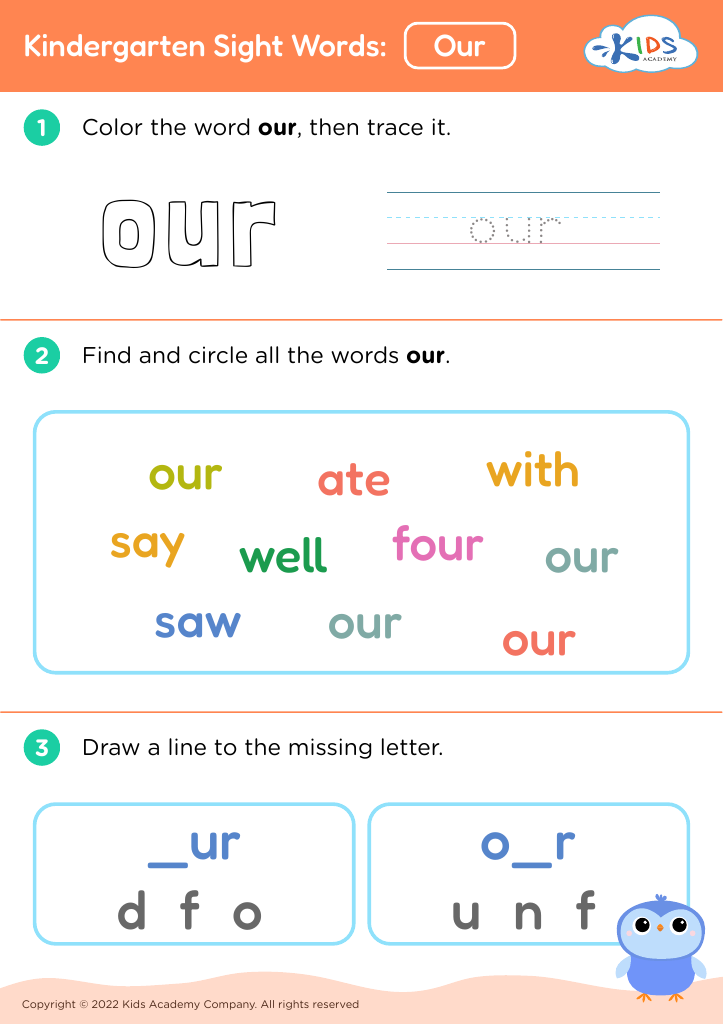Understanding number sequences Worksheets for Ages 5-9
8 filtered results
-
From - To
Unlock your child's potential with our "Understanding Number Sequences Worksheets" tailored for ages 5-9! Our engaging activities are designed to make learning number sequences a fun adventure. These worksheets help young learners grasp patterns, enhance counting skills, and improve mathematical confidence. Perfect for classroom use or at-home practice, each worksheet is crafted to build foundational math skills in a step-by-step manner. Ideal for children in early grades, our resources give them the tools they need to succeed in mathematics. Explore our collection and watch your child’s number knowledge flourish today!
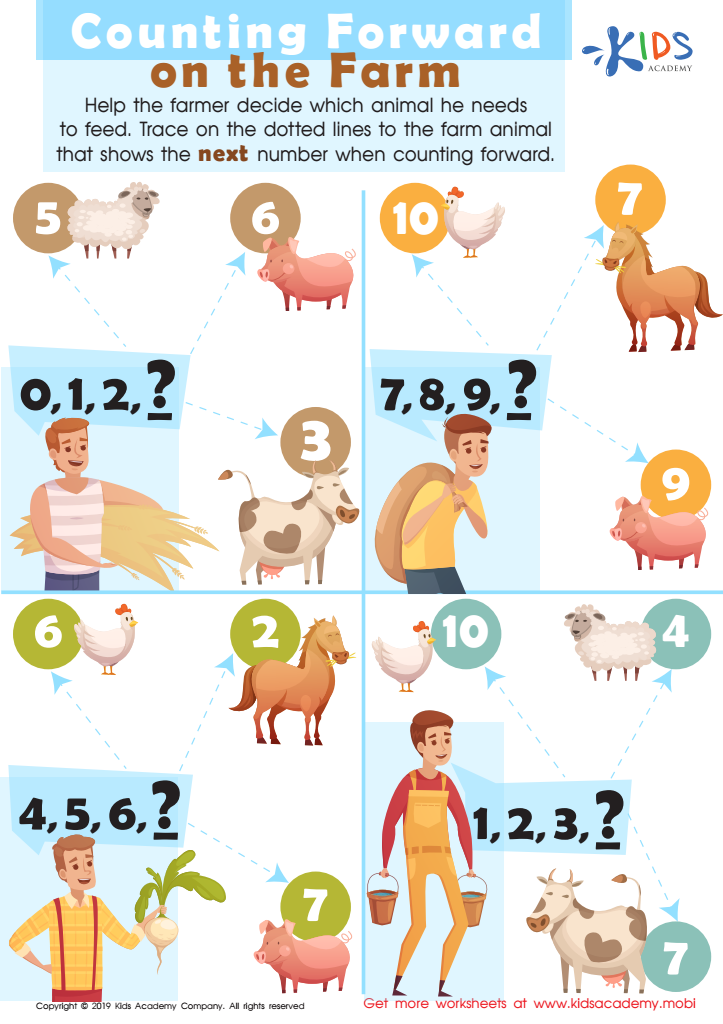

Counting Forward On the Farm Worksheet
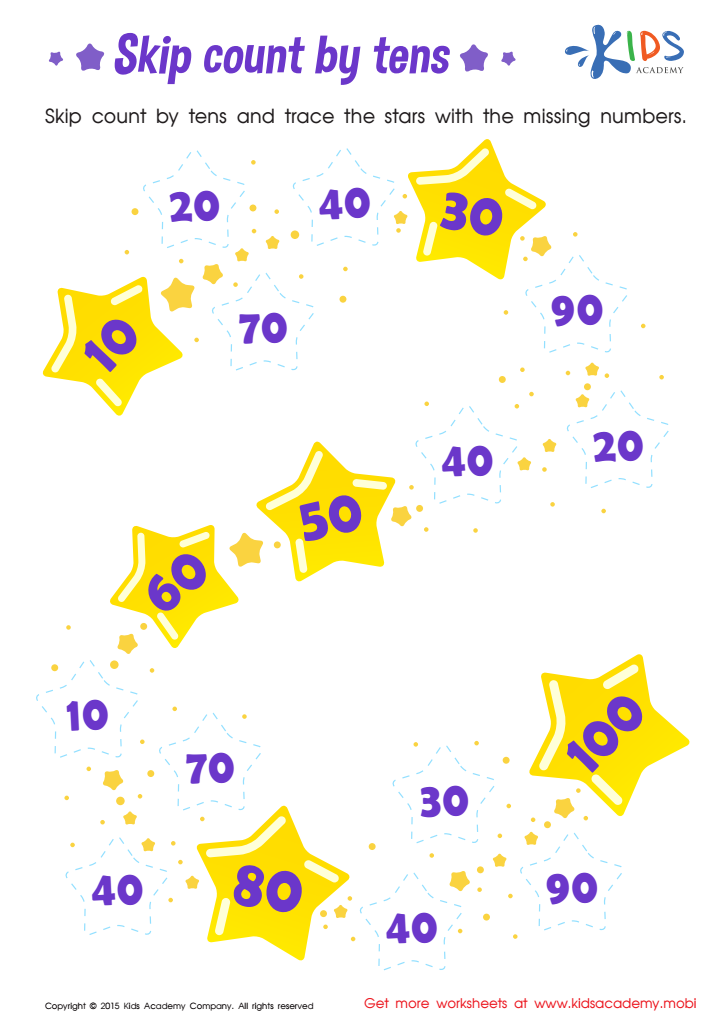

Learn dozens: Skip Count by Tens Printable
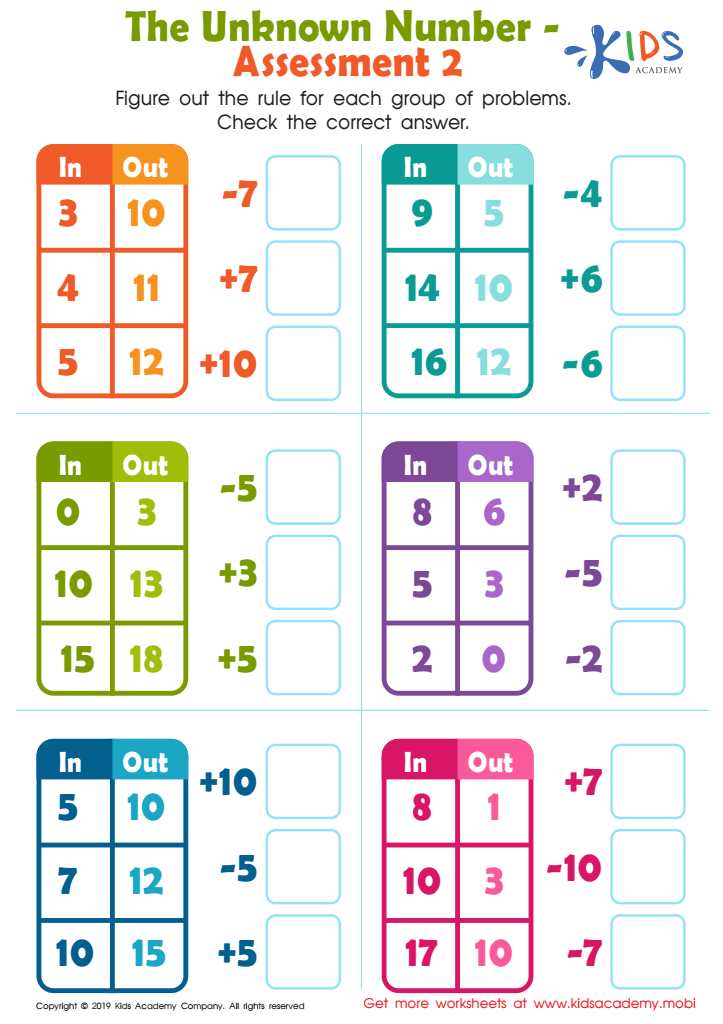

The Unknown Number - Assessment 2 Worksheet
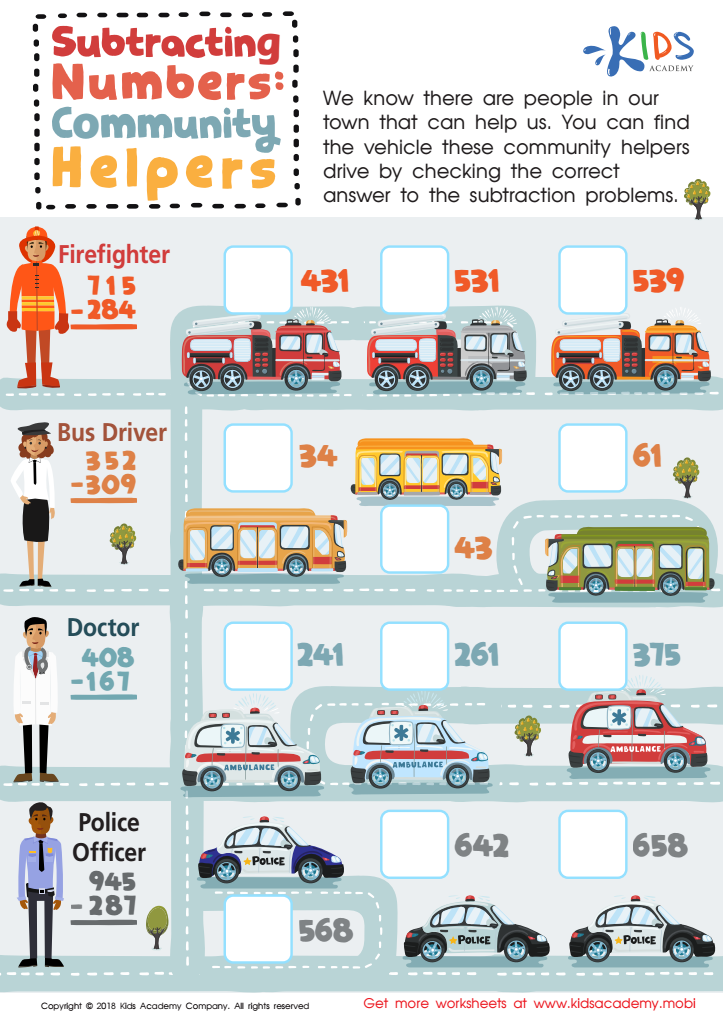

Subtracting Numbers: Community Helpers Worksheet
Understanding number sequences is crucial for children ages 5-9 as it forms the foundational basis for overall mathematical literacy. At this developmental stage, grasping number sequences enhances their numerical fluency – the ability to count confidently, recognize patterns, and anticipate numbers' behavior.
First, sequential numbering helps children develop strong counting skills. Counting is not just about reciting numbers in order; it's about understanding that each subsequent number in a sequence has a specific quantitative relationship with its predecessor. This comprehension translates into addition and subtraction skills, which are essential for more complex problem-solving later.
Second, pattern recognition via number sequences fosters cognitive development. Patterns help children predict and analyze data, which is a critical thinking skill not useless in math, but also in science and literacy. For instance, knowing that numbers increase by one in a simple sequence leads to understanding more abstract concepts like skip counting or recognizing odd and even numbers.
Parents and teachers should be invested in this area because proficiency in number sequences prepares children not only for academic success in mathematics but in logical reasoning necessary across various disciplines and real-life scenarios. Early intervention and consistent practice in making sense of number arrangements lay the groundwork for more complex mathematical concepts and foster a lifelong appreciation and competence in math.
 Assign to My Students
Assign to My Students

